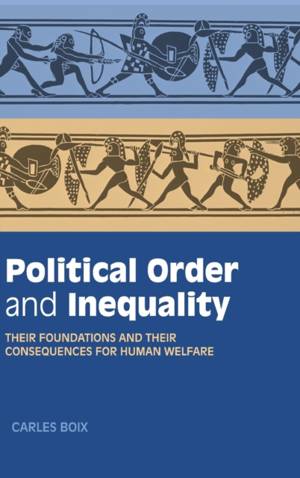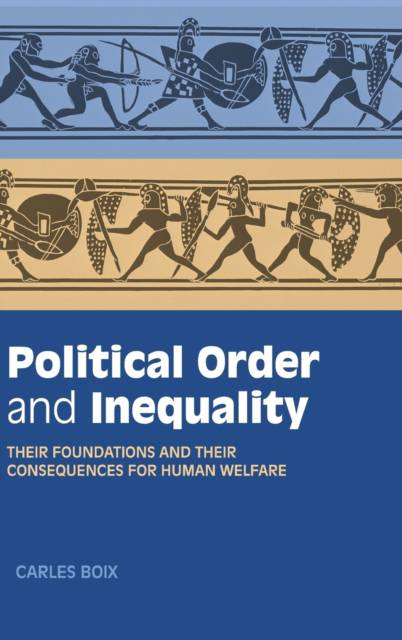
- Afhalen na 1 uur in een winkel met voorraad
- Gratis thuislevering in België vanaf € 30
- Ruim aanbod met 7 miljoen producten
- Afhalen na 1 uur in een winkel met voorraad
- Gratis thuislevering in België vanaf € 30
- Ruim aanbod met 7 miljoen producten
Zoeken
Political Order and Inequality
Their Foundations and their Consequences for Human Welfare
Carles Boix
€ 122,95
+ 245 punten
Uitvoering
Omschrijving
The fundamental question of political theory, one that precedes all other questions about the nature of political life, is why there is a state at all. Is human cooperation feasible without a political authority enforcing it? Or do we need a state to live together? This problem then opens up two further questions. If a state is necessary to establish order, how does it come into place? And, when it does, what are the consequences for the political status and economic welfare of its citizens? Combining ethnographical material, historical cases, and statistical analysis, this book describes the foundations of stateless societies, why and how states emerge, and the basis of political obligation. As a result of this inquiry, it explains the economic and political roots of inequality, describes the causes of the stagnation of the preindustrial world, and explores what led to the West's prosperity of the past two centuries.
Specificaties
Betrokkenen
- Auteur(s):
- Uitgeverij:
Inhoud
- Aantal bladzijden:
- 334
- Taal:
- Engels
- Reeks:
Eigenschappen
- Productcode (EAN):
- 9781107089433
- Verschijningsdatum:
- 23/02/2015
- Uitvoering:
- Hardcover
- Formaat:
- Genaaid
- Afmetingen:
- 157 mm x 231 mm
- Gewicht:
- 589 g

Alleen bij Standaard Boekhandel
+ 245 punten op je klantenkaart van Standaard Boekhandel
Beoordelingen
We publiceren alleen reviews die voldoen aan de voorwaarden voor reviews. Bekijk onze voorwaarden voor reviews.











